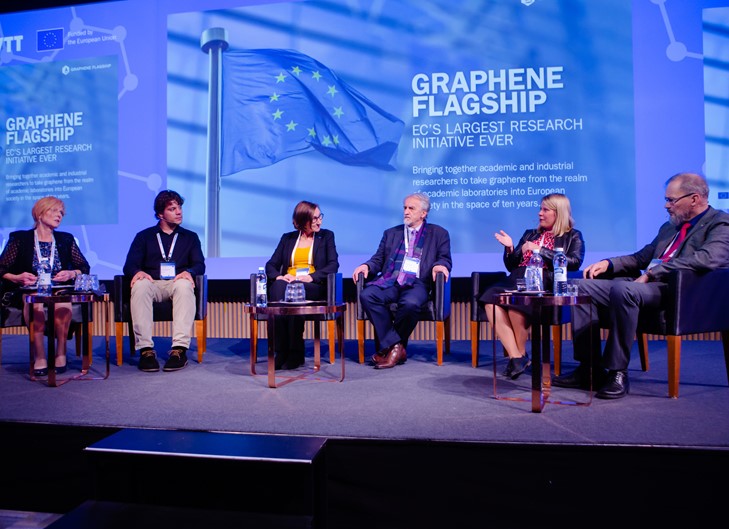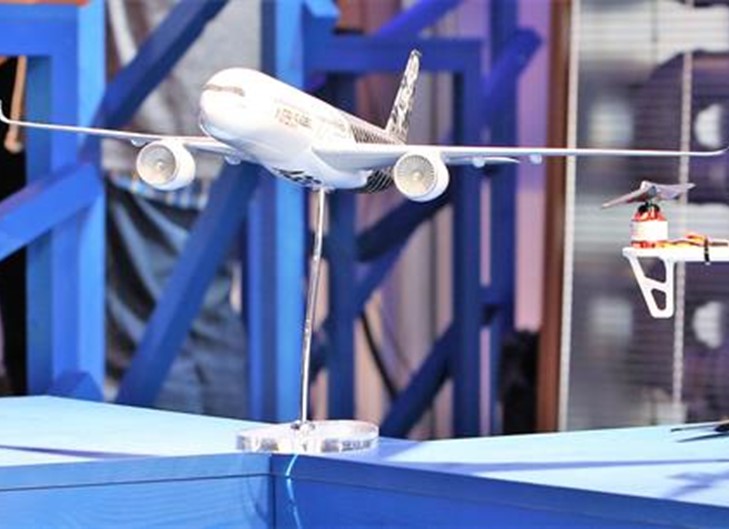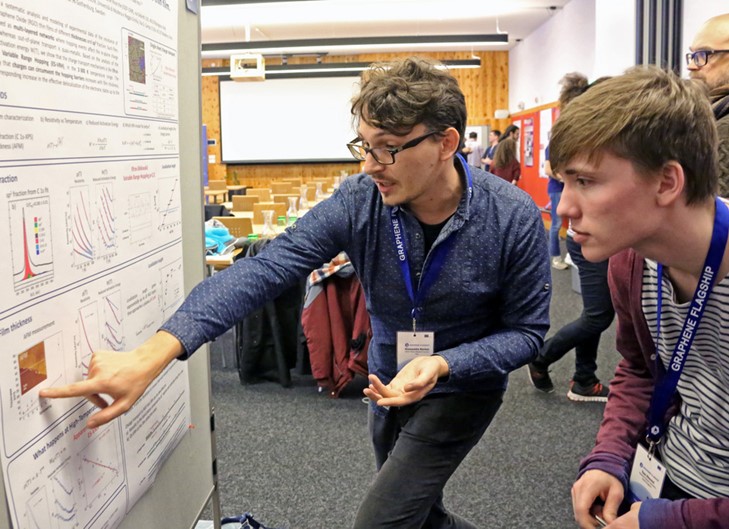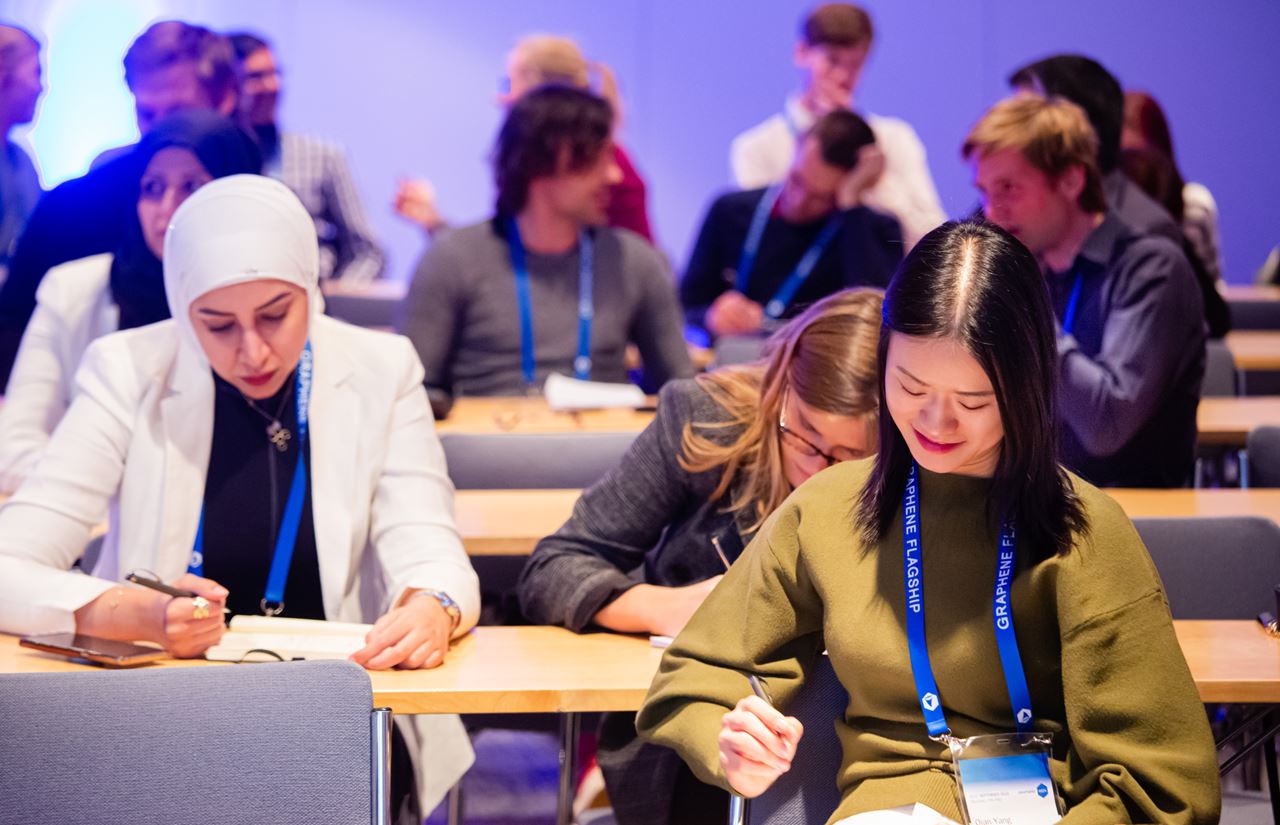Past Events

JEC World gathers the whole value chain of the composite materials industry in Paris (France) every year and is “the place to be” for composites professionals from all over the world.
The GIANCE project will host a workshop at JEC 2025 on 4 March to discuss graphene integration, production and processing, and recycling techniques, in addition to open call from the Horizon Europe initiative.
If you're interested in 2D materials or these funding opportunities, join us!

The 2D-PL workshop Advanced Characterisation Methods workshop highlights the latest innovations in analysing and advancing 2D materials, presented in a hybrid format with live streaming as it is embedded in the in-person workshop "Novel (2D) Materials and Their Applications" in Aachen. The session opens with an introduction to the 2D-Pilot Line project, the follow-up to the 2D-EPL, focusing on scalable production and integration of 2D material technologies. Abbas Mohtashami from TNO, one of the new partners of the 2D-PL, presents advancements in Scanning Nitrogen-Vacancy Microscopy as a high-resolution characterisation tool for 2D material devices. The final talk, contributed by Gertjan van Baarle (LPM) and project partner of 2D Engine, delves into in-situ tools for real-time characterization and manipulation of 2D materials during and after growth on liquid metal catalysts via CVD. Join us online and gain valuable insights into the forefront of 2D materials research and technology.
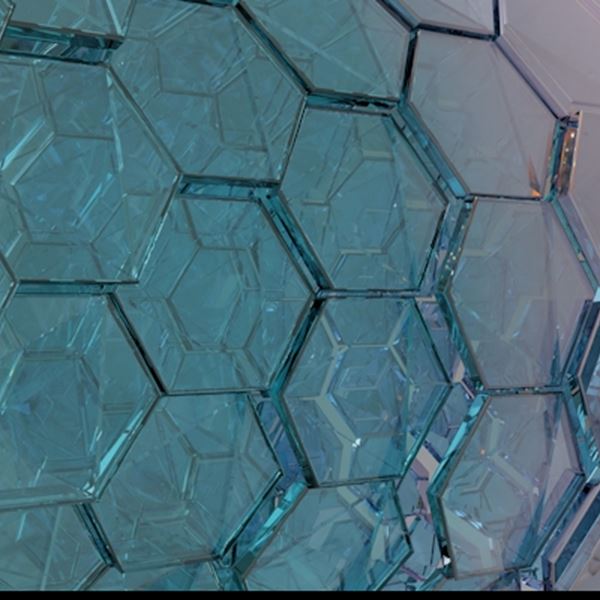
The Innovative Advanced Materials Initiative invites you to IAM-I Day, to be held 19 November from 14:00- 18:30 in Brussels at BluePoint (Address: Blvd Auguste Reyers 80, 1030 Brussels, Belgium). This session aims to share the status and next steps of the partnership association. For that, we will count on the participation of the European Commission, among other stakeholders. For the first time, the IAM-I community will have the opportunity to meet and mingle in person! Please note that seats are limited and will be assigned on a first-come, first-served basis, so we encourage you to register as soon as possible.
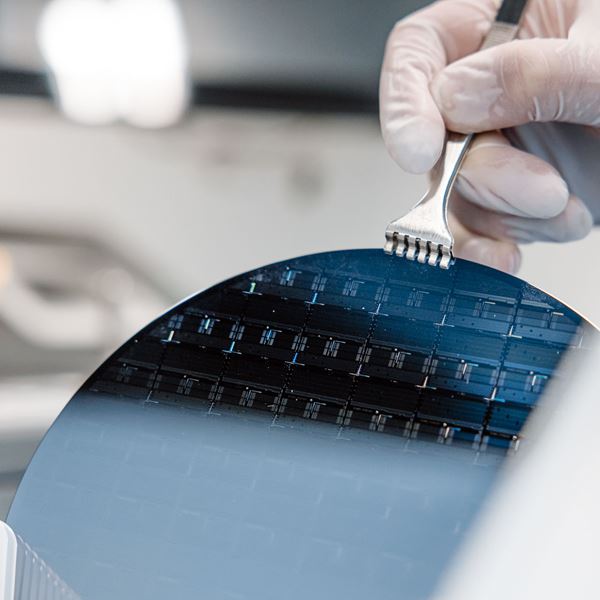
The 2D-Pilot Line (2D-PL) project aims to further strengthen the European ecosystem in the development of integration modules for photonics and electronics prototyping services. It will work to mature semiconductor technologies and provide information to aid industrial uptake. This session highlighted the work done to mature these technologies over the past four years and the work planned for the next phase of the project.
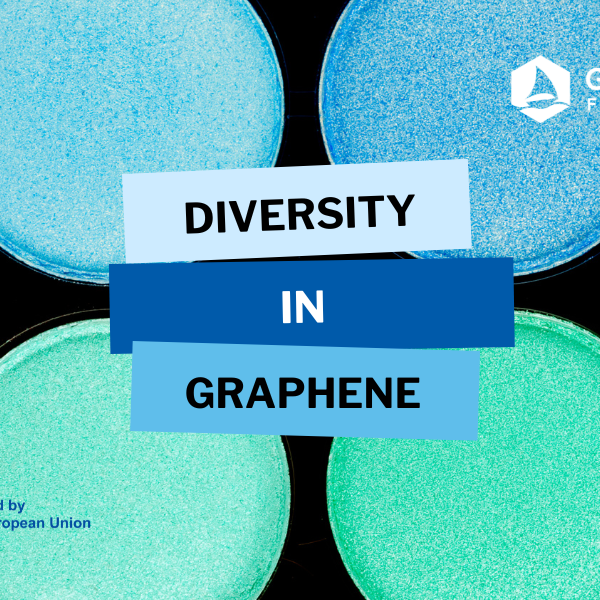
Equity, Inclusion & Diversity (EID) is not just a catch phrase, having a diverse and inclusive work environment encourages creativity, collaboration and effectiveness. This session explored the importance of diversity in research institutions and the benefits and challenges associated with creating an inclusive environment. Speakers explored their experiences and was followed by an open discussion on challenges faced and mechanisms for creating inclusive environments.

The Innovation Forum focuses on innovation and commercialisation of applications containing 2D materials. It provides an opportunity to hear about successful implementations and challenges from both start-ups and larger corporations. The presentations during the Innovation Forum are short and sharp, which gives more time for interaction through discussions and questions. Interactive panel discussions with industrial representatives probe into future application. The Graphene Flagship’s work in both standardisation and roadmapping were presented. There are also always opportunities to network and discuss ideas and future collaborations with the presenters as well as fellow attendees.

While the 2D materials community celebrates 20 years since the isolation of graphene, IOP Publishing’s 2D Materials journal celebrates its 10-year anniversary. The journal marked this occasion with a special contribution to the Graphene Week 2024 conference which was held in Prague, Czech Republic. The “Publication and peer review” workshop provided instruction for PhD students and early career researchers on how to make it as an author and a reviewer in journals.
IOPP will also organise a focus issue in 2D Materials based on Graphene Week 2024 with contributions from speakers. Authors are welcome to contribute an original research paper, topical review or perspective. The focus issue will be showcased on a dedicated webpage and promoted extensively to the community. Stay tuned!

Supported by the European Commission, Graphene Week stands at the forefront of cutting-edge research, innovation, and technology. As Europe's leading and longest-running graphene conference, it unites over 500 international experts and students to discuss key topics concerning graphene and 2D materials.
In 2024, the program welcomed over 200 speakers, and included an Innovation Forum, Exhibition, and dedicated sessions on diversity, early career development, future opportunities of the EC, and 2D materials for the future.
The 19th edition of Graphene Week was held in Prague, Czech Republic. Stay tuned for our next edition!
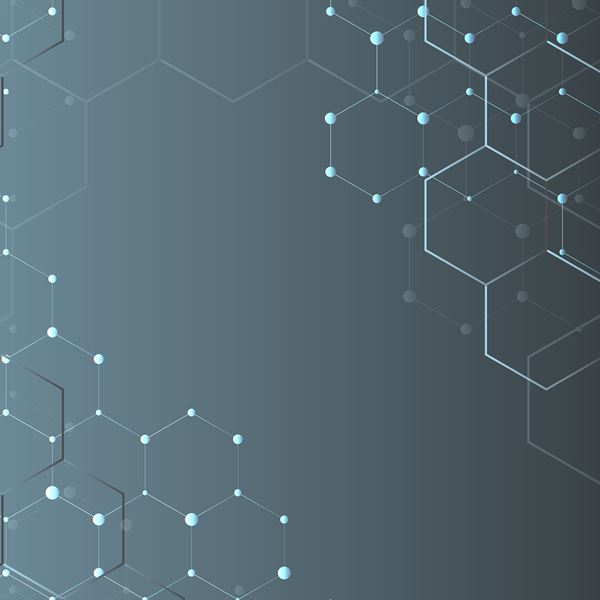 19 September 2024, 9:00-13:00
19 September 2024, 9:00-13:00
This workshop will focus on the Strategic Research & Innovation Agenda (SRIA) for Innovative Advanced Materials set by the IAM4EU partnership. During the event, we will present the content SRIA, engage in discussions, and collaboratively refine this document based on the outcomes of these discussions. Your expertise and insights will be invaluable in shaping the future of advanced materials research in Europe!

2D materials have triggered enormous interest over the past 15 years, thanks to their interesting electronic and optical properties, which have propelled them as viable candidates for replacing/complementing the good-old Silicon in future semiconductor technology nodes. Nevertheless, several tough challenges need to be addressed to take the opportunities ahead.
In this workshop, we will give an account of a few relevant R&D areas, outlining key attention points in material growth, integration, and reliability, and we will sample applications domain opportunities, underlining the unique advantages of the 2D materials, which recommend them as prime contenders for continuing the physical/functional scaling, as well as for expanding into the applications space, for the years/decades to come.
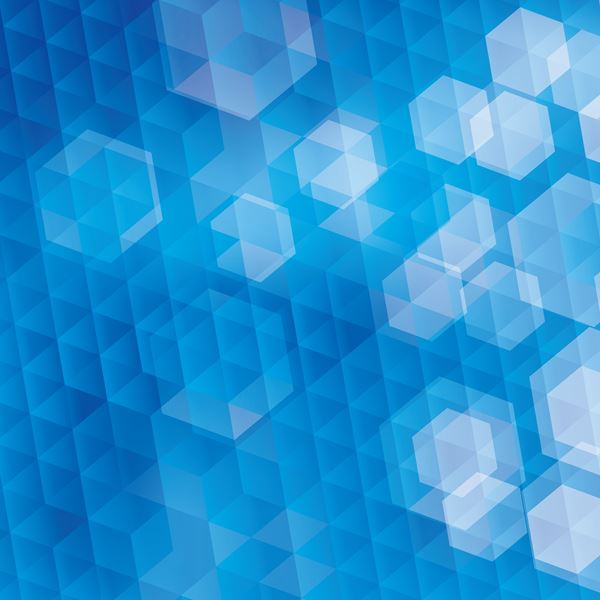
ARMS, GRAPHERGIA, SOLiD and SUPERIOT will hold the joint workshop "Synergizing Sustainability: Integrating Advanced Energy Storage with Harvesting for Wearable Electronics" on June 30 from 14:00 to 17:00. This workshop will delve into the forefront of energy-autonomous self-powered wearable electronic devices, focusing on the dynamic interaction between energy harvesting systems and transformative energy storage solutions, specifically batteries and supercapacitors.

If you are attending Graphene 2024, don't miss Graphene Flagship project GIANCE's workshop on June 26. Discover insights on sustainable graphene, printed technologies, graphene-based membranes, and more.
Also, Kari Hjelt from Chalmers Industriteknik will be talking about the 10 years of Graphene Flagship and the way ahead, offering unique insights you won’t want to miss!
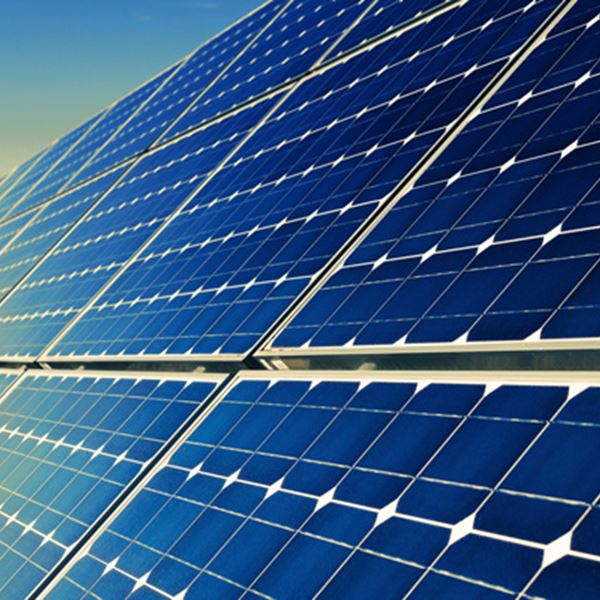
Materials Week 2024 aims to bring together – for the first time – the numerous small and large Research and Innovation (R&I) communities that are driving advances in materials innovation manifested across diverse value chains and industrial markets. The Graphene Flagship is responsible for the session on Sustainability & Circularity driven by Advanced Materials.
You can also find us in the following training courses: "How to expand the use of your test method? – Validation is key towards standardisation" and "Standardisation needs for regulatory testing of graphene and related 2D materials".
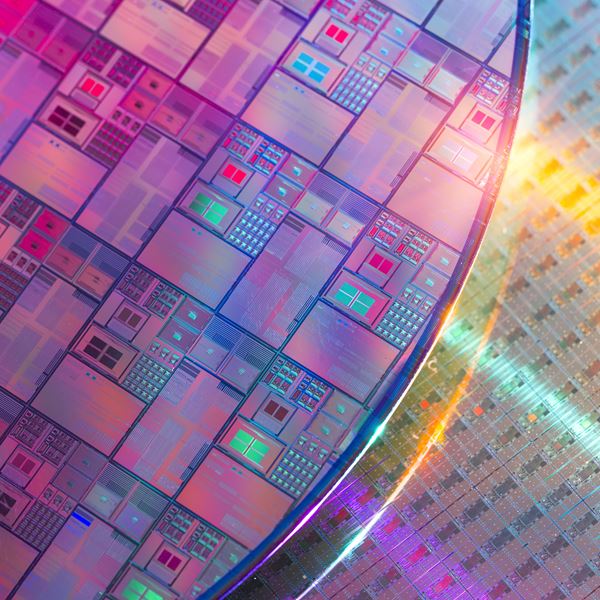
This free, lunch-to-lunch event will celebrate the 2D Experimental Pilot Line (2D-EPL) results and its progress towards creating an ecosystem for 2D materials integration in semiconductors for electronics, photonics, sensors and biomedical devices. The symposium will focus on photonics and biomedical applications and the benefits and challenges of industrial uptake for these technologies.
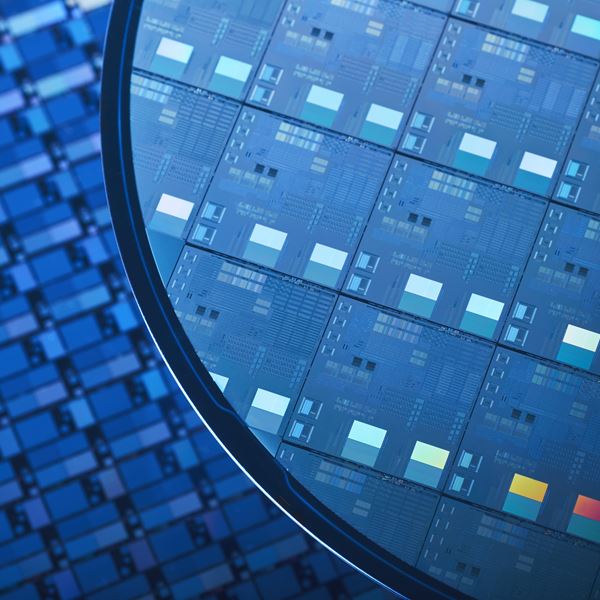
Join a free webinar to learn about the possibility to have custom graphene devices fabricated during the upcoming multiproject wafer run at 2D-EPL!

